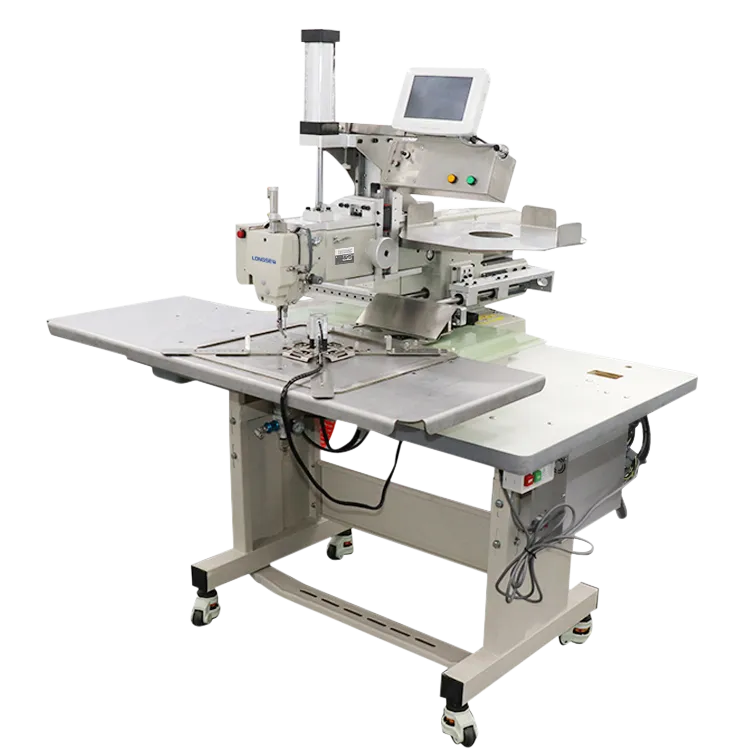Exploring Importance of FIBC, Jumbo Bag, and Big Bag Sewing Machines
In today's industrial and commercial landscapes, the demand for efficient and robust packaging solutions has escalated dramatically. This necessity has driven advancements in machinery designed for producing Flexible Intermediate Bulk Containers (FIBCs) and other large-scale packaging solutions. At the heart of these innovations are the FIBC sewing machines, jumbo bag sewing machines, and big bag sewing machines. These specialized machines are the unsung heroes ensuring that industries such as agriculture, construction, and chemical manufacturing can safely and efficiently transport bulk products. This article aims to explore the various facets of these remarkable machines and highlight their significance in our global supply chains.

FIBC sewing machines are specifically engineered to handle the unique requirements of creating FIBCs, commonly known as bulk bags or big bags. These bags are essential for storing and transporting large volumes of materials. They could be anything from powdery materials like cement and pharmaceuticals to granular substances like plastic pellets and even food products like grains and cereals. The demands on FIBC sewing machines are high; they must deliver precision stitching to ensure durability while also being capable of handling heavy-duty materials. These machines often come equipped with automated features, including programmable sewing patterns and real-time quality checks, which contribute to the production efficiency and overall reliability of the end products.
When talking about jumbo bag sewing machines, the focus shifts slightly toward even larger and more heavy-duty packaging solutions. Jumbo bags, as the name suggests, are designed for even more extensive applications, including transporting industrial-sized shipments of raw materials, waste, or construction debris. The jumbo bag sewing machines are often built to work with thicker, more robust fabric types to ensure that the bags can handle significant weight and pressure without succumbing to wear and tear. Advanced models may also include features such as double-needle stitching or reinforced seams, which enhance the bags' structural integrity and longevity.
In terms of versatility, big bag sewing machines bring a unique advantage to the table. These machines are often adaptable enough to create a variety of bag sizes and styles, from FIBCs and jumbo bags to other custom-designed packaging solutions. This flexibility makes them invaluable in industries where different types of bulk packaging are required on a regular basis. The adaptability of big bag sewing machines is usually achieved through adjustable settings, such as variable stitch lengths and an array of needle sizes, which allow for quick and easy changes based on the specific requirements of the job at hand.
The integration of technology into these machines cannot be overstated. Modern FIBC, jumbo bag, and big bag sewing machines are incorporating more sophisticated software systems that enable greater customization, automation, and precision. Features like touch screen interfaces, automated tension control, and real-time defect detection not only enhance the efficiency of the production process but also significantly improve the quality of the final product. The use of computerized systems allows for data collection and analytics, which can help manufacturers optimize their operations and identify areas for improvement. Furthermore, integrating Internet of Things (IoT) capabilities allows these machines to be part of a larger, interconnected production ecosystem, enabling seamless communication and coordination across different stages of the supply chain.
Finally, the environmental impact of these machines is an area gaining increasing focus. As global consciousness around sustainability grows, manufacturers of FIBC, jumbo bag, and big bag sewing machines are making strides to enhance the eco-friendliness of their products. This could range from using energy-efficient motors to incorporating recyclable materials in machine design and even optimizing production processes to minimize waste. By focusing on sustainable practices, these machines not only meet regulatory requirements but also contribute to broader environmental goals, making them an integral part of responsible industrial operations.
In conclusion, FIBC sewing machines, jumbo bag sewing machines, and big bag sewing machines are indispensable components of modern manufacturing and logistics industries. Their role in ensuring the safe, efficient, and sustainable transportation of bulk materials cannot be overstated. The technological advancements incorporated into these machines ensure they are continually evolving to meet the demands of various industries. Whether through enhanced features for customization, automated quality control, or efforts to become more environmentally sustainable, these machines are at the forefront of a critical, yet often overlooked, aspect of industrial operations. As businesses continue to seek innovative and efficient ways to handle bulk materials, the relevance and importance of these specialized sewing machines will only continue to grow.
-
Boost Production Efficiency with a Pattern Sewing MachineNewsAug.29,2025
-
Industrial Excellence with the Best Heavy Duty Sewing MachineNewsAug.29,2025
-
Precision and Power with the Best Pattern Sewing MachineNewsAug.29,2025
-
Reliable Bulk Packaging Starts With the Right FIBC Sewing MachineNewsAug.29,2025
-
Advanced Packaging Solutions: Elevate Productivity with Jumbo Bag Sewing Machine and Industrial Stitching EquipmentNewsAug.29,2025
-
High-Performance Solutions for Bulk Packaging: FIBC Sewing Machine and MoreNewsAug.29,2025
-
Maximize Efficiency with an Industrial Cylinder Arm Sewing MachineNewsAug.28,2025


























